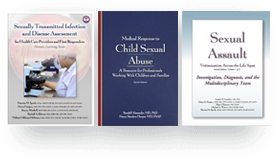Medical Neglect in Children
What is Medical Neglect?
Medical neglect is generally defined as a parent or guardian’s failure to provide adequate medical care for their child or children. The term can encompass a variety of neglectful behaviors:
- Failure to recognize obvious signs of physical injury, medical illness, or mental health
- Delaying seeking medical assistance for an acute illness
- Ignoring medical recommendations by a physician
- Bringing the child to a health care setting only when the child becomes seriously ill or near death
When it comes to children with chronic illness, the concept can include neglecting medical therapies, not filling medical prescriptions, and not giving the prescribed doses. If a child misses an excessive amount of school due to chronic illness, this may also fall under the category of medical neglect.
Additionally, refusing care for a treatable illness that places the child at risk is considered medical neglect. The most common examples are failure to immunize children for preventable diseases and avoiding treatment with traditional medical care due to religious or cultural belief (though religious exemptions are still allowed in many states).
Diagnosing Medical Neglect
Several factors must be present for a diagnosis of medical neglect, according to the American Academy of Pediatrics:
- A child is harmed or at risk of harm because of lack of health care
- The recommended health care offers a significant net benefit to the child
- The benefit of the treatment is significantly greater than its morbidity, such that a reasonable caregiver would choose treatment over non-treatment
- It can be determined that access to health care is available, but is not being used
- The caregiver understands the medical advice that is given
Many factors can lead to a child not receiving appropriate medical care, which is why it is important to carefully consider each individual situation before diagnosing. Poverty and/or lack of access to care can contribute to neglect. Other reasons may be family disorganization, a lack of awareness or trust in health care professions, impairment or beliefs of the caregiver, and the child’s attitude.
Medical professionals should also be aware of their own blind spots. A misunderstanding of other cultures, lack of parent health literacy, or miscommunication in the medical setting could impact a diagnosis of neglect.
Once a determination is made, medical providers can intervene in a number of ways. Keeping in mind that ensuring the child’s health is the primary concern. The American Academy of Pediatrics has created a list of recommendations for health care workers who handle medical neglect cases. These suggestions range from making sure the family is fully aware of the severity situation to referring the family to hospital programs or child protective service agencies if needed.
This blog was written by STM Learning’s editorial staff for educational purposes only. It is not intended to give specific medical or legal advice. For expert information on the discussed subjects, please refer to STM Learning’s publications.








